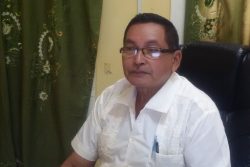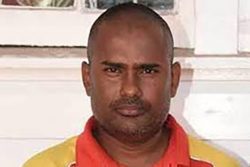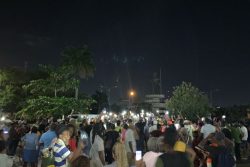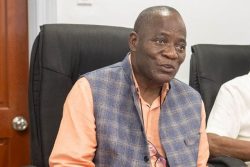The National Assembly on Thursday passed the long-awaited Persons with Disabilities Bill, paving the way for the establishment of National Commission on Disabilities and the implementation of several measures to improve the lives of the differently-abled.
The report of the Special Parliamentary Select Committee on the Bill was unanimously adopted, following which the Bill was taken through its final reading. This was done in the absence of the majority of the PNCR-1G members, who walked out of the House as Health Minister Dr Leslie Ramsammy rose to move the motion to adopt the report.
The party has adopted this approach whenever Ramsammy presents in the House, as it continues to call for an investigation into allegations that the minister helped to facilitate the purchase of ‘spy equipment’ associated with convicted drug trafficker Roger Khan. However, PNCR-1G MP Dr George Norton remained in the House to indicate his party’s support for the legislation.
PPP/C MP Kwame Gilbert called for a change of attitude in the country regarding the disabled and encouraged citizens to “give life to the Bill” by informing themselves about the legislation and promoting the rights of the disabled. He said that the legislation sends a clear message that all equal and deserving of equal opportunities.
Dr Vishwa Mahadeo, a PPP/C MP, described the new measures as positive and said that all the ministries involved had pledged their support to see them implemented. These ministries include the ministries of Health, Labour, Human Services and Social Security, Education, Housing and Water and Culture, Youth and Sport.
AFC MP Latchmin Punalall indicated her party’s support for the Bill, but said that some grey areas still remained.
She enquired what parameters would be used to determine who was disabled and also asked about the criteria to be used to determine which disabled person could be employed or who would qualify for welfare.
Punalall asked what conditions would apply for disabled persons who apply for drivers’ licences. She also enquired as to how soon sports programme for disabled persons would be implemented.
In response, Dr Ramsammy said that the deliberate decision was made not to pronounce specifically on these matters but to leave them to the Commission to decide one. He said that the Bill was one which every citizen should support and noted that it was intended “to empower” the disabled.
The Persons with Disabilities Bill 2009, was sent to a select committee in November, after an extensive debate in the National Assembly.
On that occasion the Bill was hailed for its transformational nature and it was noted that the piece of legislation is in keeping with the United Nations Convention on the Rights of Persons with Disabilities.









